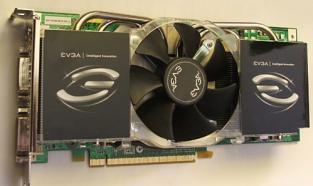OOPS! You forgot to upload swfobject.js ! You must upload this file for your form to work.
Error in the encryption algorithms AES-256 of SandForce controller
![]()
|
xtreview is your : Video card - cpu - memory - Hard drive - power supply unit source |
|
|||
|
|
||||
 Recommended : Free unlimited image hosting with image editor
Recommended : Free unlimited image hosting with image editor
|
POSTER: computer news || ERROR IN THE ENCRYPTION ALGORITHMS AES-256 OF SANDFORCE CONTROLLER |
DATE:2012-06-13 |
|
|
Controllers SandForce 2000-D series, which are used in a large number of solid-state drives have a congenital defect that prevents proper operation of encryption algorithms AES-256. The problem is the hardware and can not be corrected with the release of new firmware. Intel, which uses SandForce controllers in a series of drives 520 is working on the problem. Details of the defect are not disclosed, but it is known that the controllers can easily work with 128-bit encryption key. In turn, Intel has launched a series of drive 520, which were acquired prior to July 1, 2012. The Company will return to the buyer the full purchase price, while the product fully supports AES-256 algorithm, there will be only a few months later. The program will run until October 1, 2012. Kigston company is also ready to replace the drive with new controller after the last become available. To avoid confusion, Kingston will make adjustments to the official documentation and the mention of AES-256 will be removed to resolve the problem. Note that this is not the first problem with SandForce controllers . However, in this case, the problem is significant for a limited number of users of solid-state drives, as most unlikely to use data encryption, and AES-256 algorithms are relevant only for the super-secret organizations. | ||
|
|
||
|
xtreview is your : Video card - cpu - memory - Hard drive - power supply unit source |
|
|
|
|
||
|
Xtreview Support  N-Post:xxxx Xtreview Support        |
ERROR IN THE ENCRYPTION ALGORITHMS AES-256 OF SANDFORCE CONTROLLER |
| Please Feel Free to write any Comment; Thanks  |
The new version of GPU-Z finally kills the belief in the miracle of Vega transformation (2017-09-08)
We are looking for copper coolers on NVIDIA Volta computing accelerators (2017-09-08)
Unofficially about Intels plans to release 300-series chipset (2017-09-08)
AMD Vega 20 will find application in accelerating computations (2017-09-08)
AMD Bristol Ridge processors are also available in American retail (2017-09-07)
duo GeForce GTX 1080 Ti in GPUPI 1B at frequencies of 2480-10320 MHz (2017-09-07)
New Kentsfield overclocking record up to 5204 MHz (2017-09-07)
Advertising Radeon RX 570 for 279 dollars AMD caused a storm of emotions (2017-09-07)
The European Court sent Intel case on abuses for reconsideration (2017-09-07)
Huawei overtook Apple and became the second largest smartphone manufacturer in the world (2017-09-07)
Twelve-core Core i9-7920X lost the lid in front of the photographic lens (2017-09-06)
In exchange for increasing the stake in the joint venture with Toshiba, Western Digital Corporation is ready to refuse to participate in the auction (2017-09-06)
China banned the creation of new ICO crypto-currency and ordered to return the money for the created one (2017-09-06)
The six-core processor Intel Coffee Lake lit up at a Chinese auction (2017-09-06)
Budget Android-smartphone Xiaomi certified in China (2017-09-06)
Delivery of virtual reality seats Roto VR will begin in late October (2017-09-05)
Compact systems Intel NUC based on Coffee Lake will be released in the second quarter of 2018 (2017-09-05)
Asustek increases its share in the segment of expensive motherboards (2017-09-05)
Ilon Mask believes that the third world war can begin artificial intelligence (2017-09-05)
The six-core processor Intel Coffee Lake has conquered the frequency of 5.0 GHz (2017-09-05)
![]()
To figure out your best laptops .Welcome to XTreview.com. Here u can find a complete computer hardware guide and laptop rating .More than 500 reviews of modern PC to understand the basic architecture


7600gt review
7600gt is the middle card range.
We already benchmarked this video card and found that ...

 geforce 8800gtx and 8800gts
geforce 8800gtx and 8800gts  Xtreview software download Section
Xtreview software download Section  AMD TURION 64 X2 REVIEW
AMD TURION 64 X2 REVIEW  INTEL PENTIUM D 920 , INTEL PENTIUM D 930
INTEL PENTIUM D 920 , INTEL PENTIUM D 930  6800XT REVIEW
6800XT REVIEW  computer hardware REVIEW
computer hardware REVIEW  INTEL CONROE CORE DUO 2 REVIEW VS AMD AM2
INTEL CONROE CORE DUO 2 REVIEW VS AMD AM2  INTEL PENTIUM D 805 INTEL D805
INTEL PENTIUM D 805 INTEL D805  Free desktop wallpaper
Free desktop wallpaper  online fighting game
online fighting game  Xtreview price comparison center
Xtreview price comparison center Lastest 15 Reviews


Rss Feeds
Last News
- The new version of GPU-Z finally kills the belief in the miracle of Vega transformation
- The motherboard manufacturer confirms the characteristics of the processors Coffee Lake
- We are looking for copper coolers on NVIDIA Volta computing accelerators
- Unofficially about Intels plans to release 300-series chipset
- The Japanese representation of AMD offered monetary compensation to the first buyers of Ryzen Threadripper
- This year will not be released more than 45 million motherboards
- TSMC denies the presentation of charges from the antimonopoly authorities
- Radeon RX Vega 64 at frequencies 1802-1000 MHz updated the record GPUPI 1B
- AMD itself would like to believe that mobile processors Ryzen have already been released
- AMD Vega 20 will find application in accelerating computations
- Pre-orders for new iPhone start next week
- Radeon RX Vega 57, 58 and 59: the wonders of transformation
- ASML starts commercial delivery of EUV-scanners
- The older Skylake processors with a free multiplier are removed from production
- Meizu will release Android-smartphone based on Helio P40
- AMD Bristol Ridge processors are also available in American retail
- The fate of Toshiba Memory can be solved to the next environment
- duo GeForce GTX 1080 Ti in GPUPI 1B at frequencies of 2480-10320 MHz
- New Kentsfield overclocking record up to 5204 MHz
- Lenovo released Android-smartphone K8

HALO 3 HALO 3 - Final Fight!

PREY Prey is something you don t often see anymore: a totally unigue shooter experience.

computer news computer parts review Old Forum Downloads New Forum Login Join Articles terms Hardware blog Sitemap Get Freebies


